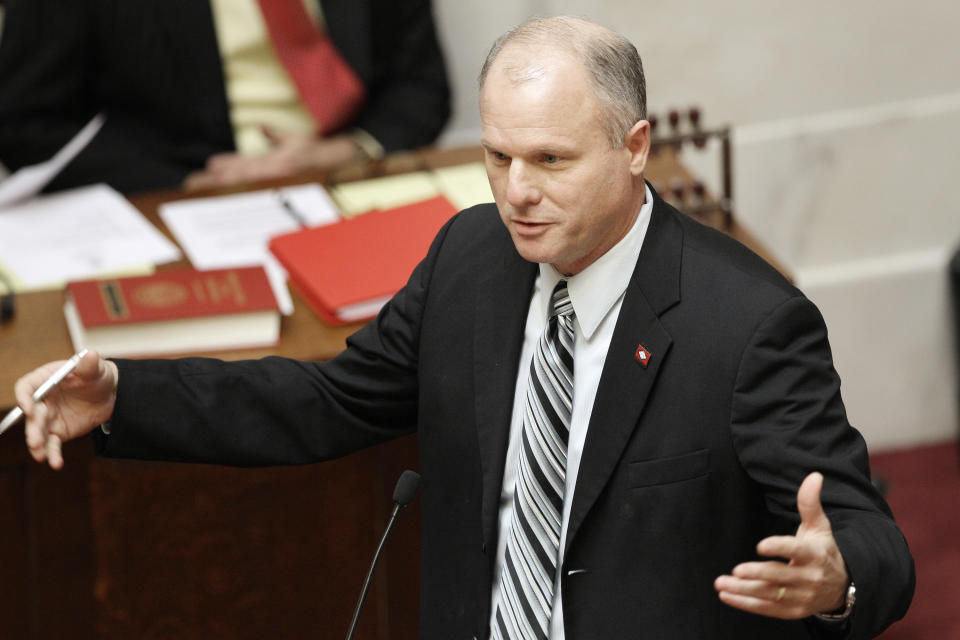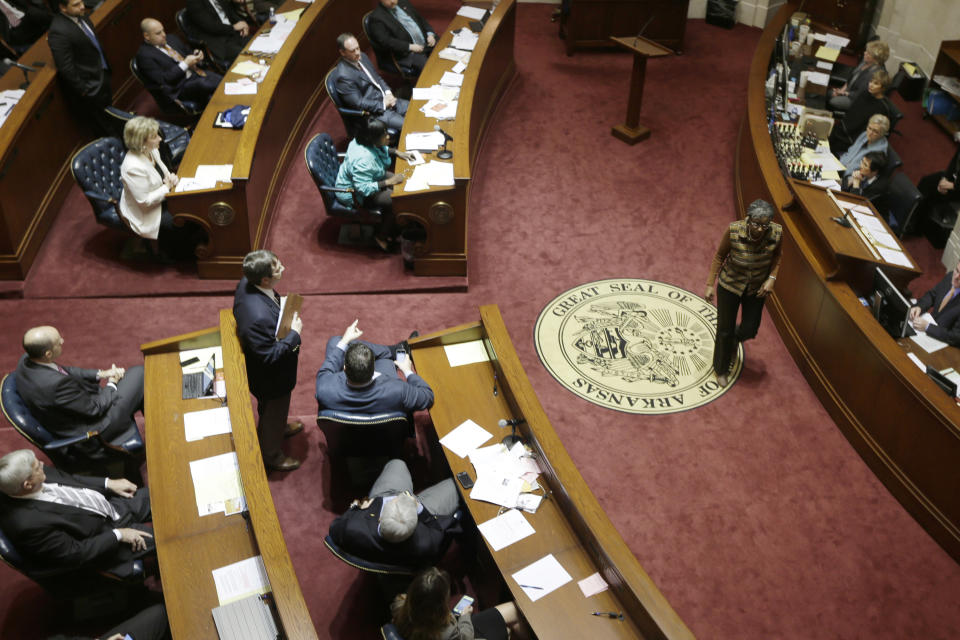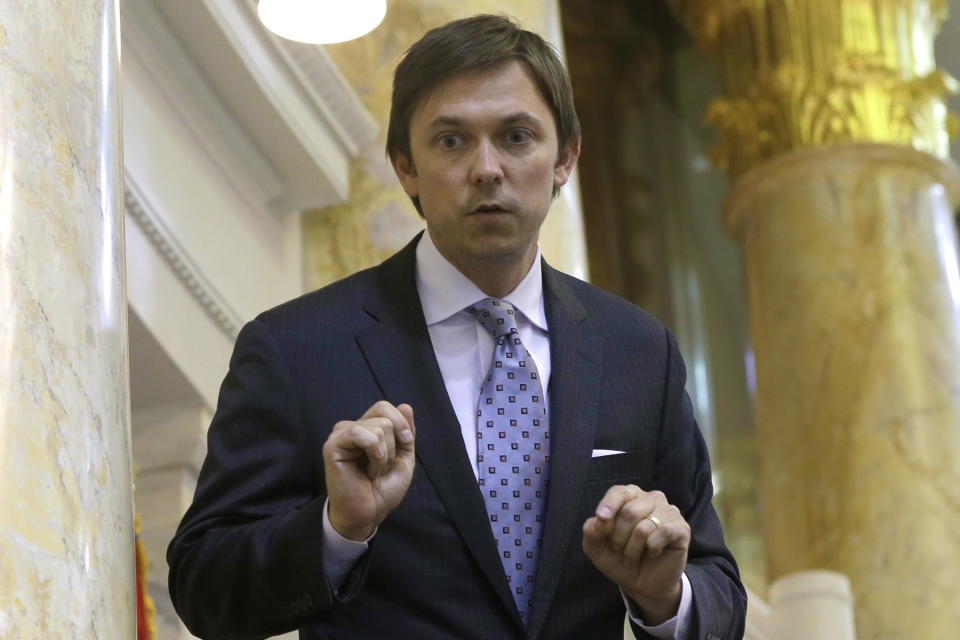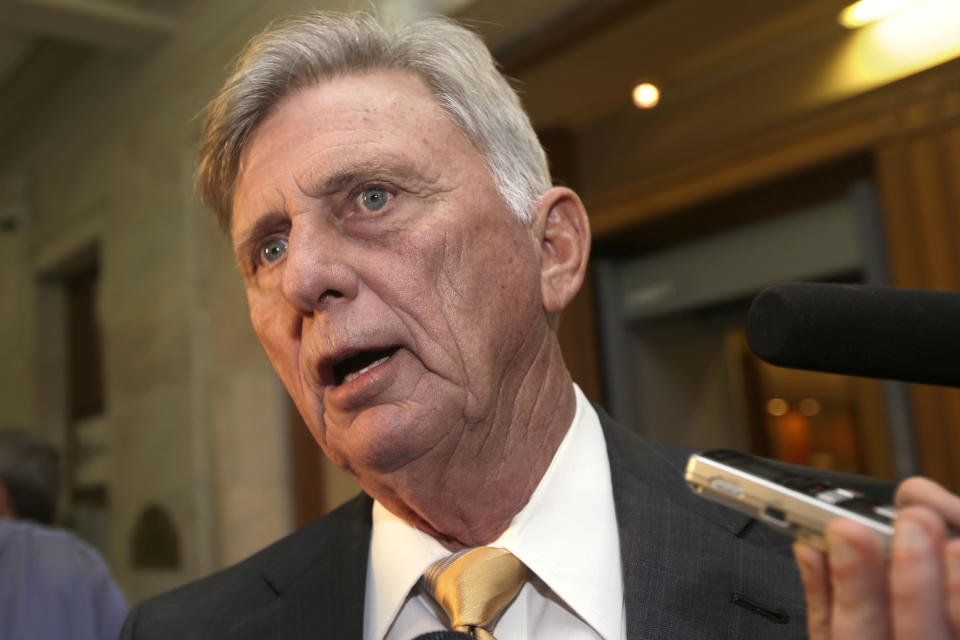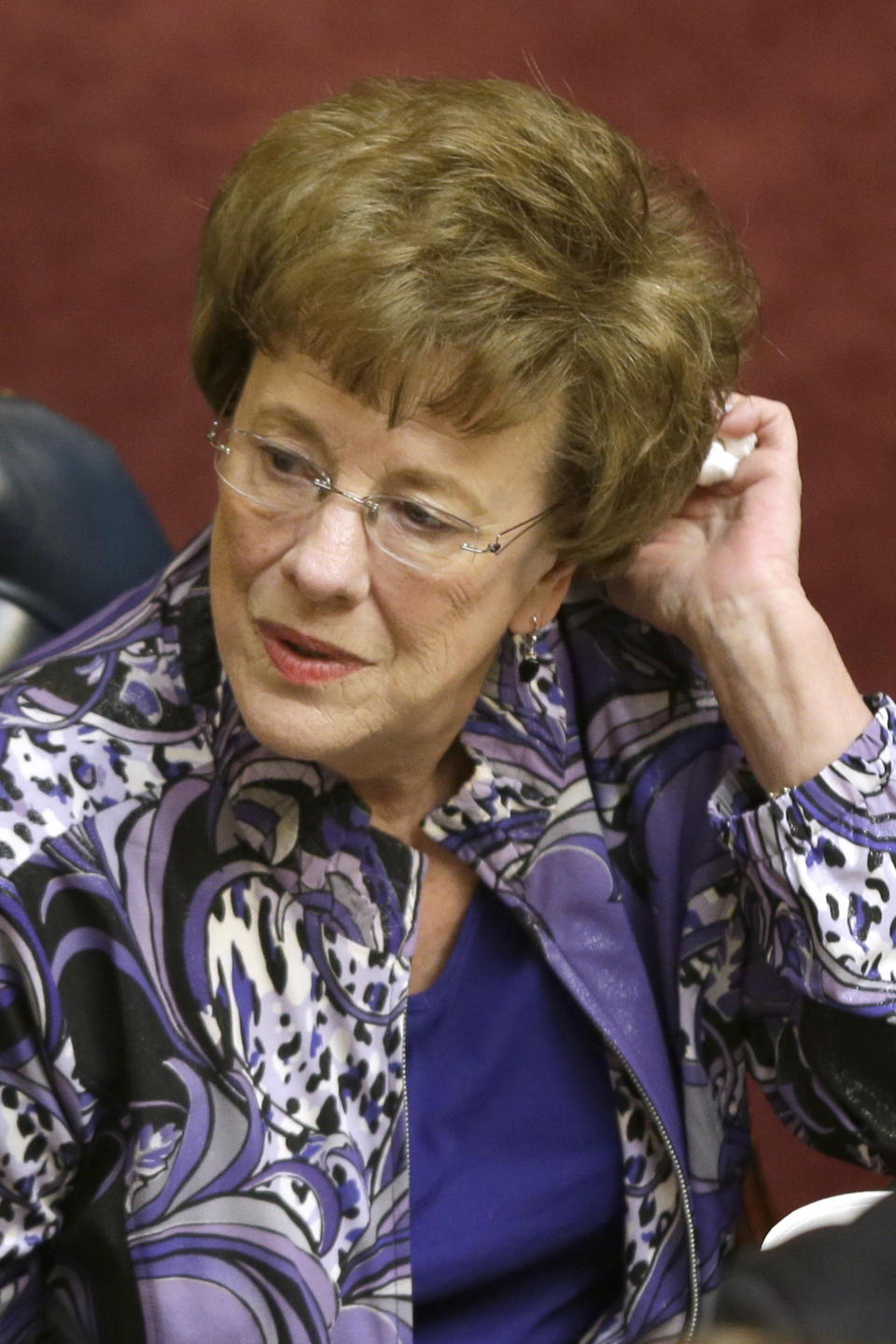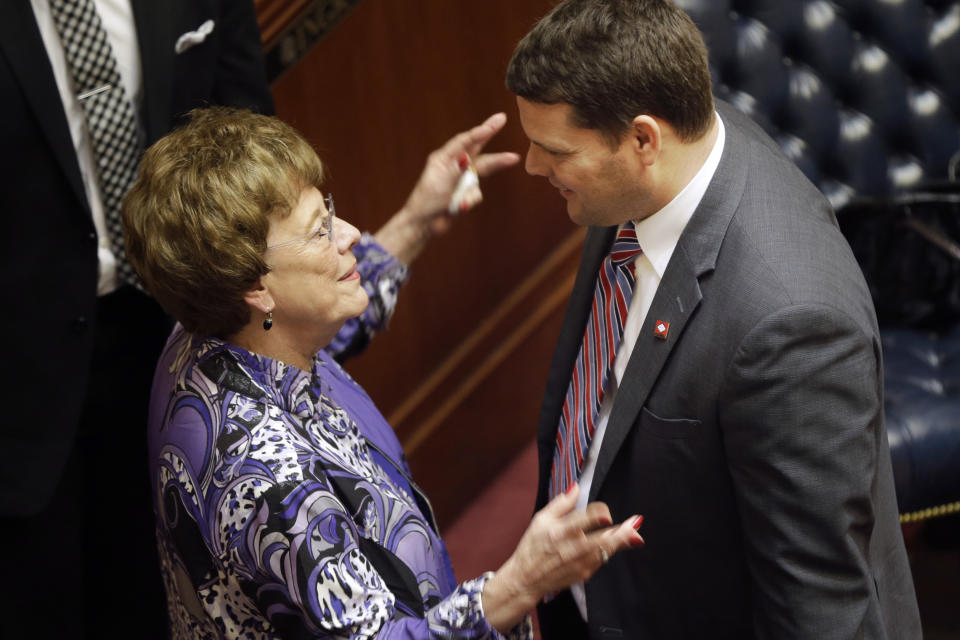Arkansas Senate passes, House rejects health plan
LITTLE ROCK, Ark. (AP) — A compromise plan for Medicaid expansion in Arkansas remained stalled in the state House Thursday, despite the state Senate endorsing legislation to continue the nationally watched program that is providing subsidized health coverage to more than 87,000 people.
The House on Thursday voted 72-25 to reauthorize funding for the "private option," three votes shy of the 75 needed to continue the program using federal Medicaid funds to purchase private insurance for low-income residents. Arkansas was the first state to win approval for such a plan as an alternative to expanding Medicaid under the federal health law.
The House vote followed the Senate approving an identical version of the funding bill by a 27-8 vote. The measure needed 27 votes in the 35-member Senate. House leaders have said they'll keep holding votes on the program's future until it passes.
"Enough's enough," said House Speaker Davy Carter, R-Cabot, who said the House will take up the legislation again Friday morning. "We've done this all week and we'll continue to do it."
The plan has sharply divided Republicans, who control the Legislature and have made major gains in Arkansas over the past two elections by running against President Barack Obama's health care law. Republican supporters of the private option have said the private market can administer the benefits more efficiently than Medicaid, which they consider bloated.
"We saw this as a mechanism, a backstop against many of the negative elements in the Affordable Care Act," said Sen. David Sanders, R-Little Rock, one of the architects of the private option law. "We didn't put us in this mess, but certainly I feel we have an obligation to do what's best for our state and advance a policy that may have long-term implications not just for Arkansas, but the country."
GOP opponents have said the program is an embrace of the federal law they've derided as Obamacare, and said the state can't afford the eventual cost when it'll be required to eventually chip in 10 percent of the cost of the expansion.
"I think this is one of the worst socioeconomic policies in the history of our state that we will live to regret," Sen. Alan Clark, R- Lonsdale, told colleagues before the vote.
Opponents continued urging for a vote on the state's Medicaid budget without the private option in it.
"I think we need to take out the stuff that's causing the roadblock and vote on the things that I believe 90 to 100 percent of the House can support," said House Majority Leader Bruce Westerman, R-Hot Springs.
National health policy experts say Arkansas' compromise opened the door for other Republican-leaning states to consider similar models. Other states exploring or pursuing similar ideas include Pennsylvania, Iowa and Virginia.
Democratic Gov. Mike Beebe has said rejecting the $915 million in federal funds for the private option would jeopardize other state services. Beebe's proposed $5 billion budget relies on $89 million in savings he says the private option will create by cutting down on hospitals' uncompensated care costs.
This is the third time the bill has stalled in the House, where supporters had initially believed they had enough votes. The proposal includes changes to the private option aimed at swaying opponents, including a prohibition on the state spending any public money to promote the program or other aspects of the federal health law.
House Democrats remained confident that the private option would eventually survive, but vented frustration over the repeated deadlocked votes.
"Our patience is being tested," said Rep. Joe Jett, D-Success. "This thing has been dragging on enough. It's more or less politics over policy. Everybody in the chamber pretty much knows we're going to pass this thing."
Prospects had dimmed for the private option in the Senate last month after an opponent of the program won a special election and a former supporter of the program announced she would vote against it. But supporters secured the deciding vote after Republican Sen. Jane English, who voted against the private option last year, said she'd back the funding bill in exchange to changes to the state's workforce training program.
___
Associated Press Writer Christina Huynh contributed to this report
___
Follow Andrew DeMillo on Twitter at www.twitter.com/ademillo

